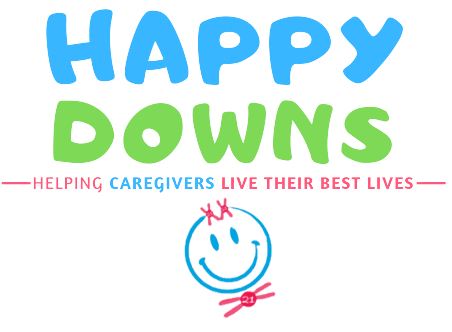Supporting a loved one with Down Syndrome isn’t just about responding to a diagnosis; it’s about helping them live a meaningful, empowered life. Down Syndrome is a genetic condition caused by the presence of an extra chromosome 21, resulting in unique developmental and health needs that often require personalized care, especially regarding medication management. For family caregivers, understanding these health needs is essential to promoting their loved one’s health and well-being.
Understanding Down Syndrome and Health Needs
Individuals with Down Syndrome may have increased health risks, including heart conditions, thyroid imbalances, respiratory issues, and susceptibility to infections. Each of these conditions may require ongoing medication to manage symptoms, prevent complications, and support daily wellness.
The Role of Medication in Daily Health Management
Medication is a critical part of maintaining good health for many individuals with Down Syndrome. Some of the most common medications include thyroid hormone replacements, heart medications, and antibiotics. Each medication plays a specific role, from managing heart rate to balancing hormones or combating infections. Taking medication as prescribed can prevent setbacks, reduce hospital visits, and support overall well-being.
Creating a Personalized Medication Management Plan

Creating a successful medication management plan requires understanding your loved one’s unique health needs, respecting their preferences, and setting up a reliable system. Here’s a step-by-step guide to developing a plan that promotes consistency, safety, and independence:
- Use Visual Reminders: Utilize calendars, medication charts, or digital apps to schedule doses and track medication times. Visual tools provide structure and take the pressure off remembering every dose.
- Consult Healthcare Providers: Regular consultations with healthcare providers help ensure that medication doses and schedules align with individual health needs. It’s also a chance to clarify questions and discuss any side effects or changes in medication.
- Involve Your Loved One: Whenever possible, include your loved one in their medication plan. Encouraging their input builds confidence, independence, and familiarity with their routine.
Tools and Strategies for Supporting Medication Management
Supporting medication management involves empowering your loved one to understand and follow their routine. Here are some practical tools and tips:
- Medication Reminder Apps: Technology can be a useful ally. Many apps allow you to set reminders and track when medications are taken. Encourage your loved one to interact with these reminders as much as possible for added independence.
- Family Support and Check-ins: Family involvement is key in keeping a medication routine on track. Regular check-ins not only reinforce the importance of adherence but also create opportunities to review any difficulties or successes with the plan.
- Community Support: Support from close friends or a community group can provide additional encouragement. When people close to your loved one are aware of their needs, they can help offer gentle reminders or encouragement, making medication management feel more collaborative.
Monitoring Side Effects and Medication Responses
For individuals with Down Syndrome, tracking how medications affect their unique physiology is essential. Some medications may cause unexpected reactions or have side effects that can be managed with small adjustments. Here’s how to monitor and respond effectively:
- Record Observations: Maintain a simple journal or use a tracking app to log any side effects or changes in behavior, mood, or energy levels. Make notes about when symptoms appear and how long they last.
- Stay in Touch with Healthcare Providers: Share your observations during regular visits to help providers tailor the treatment. If a medication is causing distress or unwanted side effects, it may be possible to adjust the dosage or find an alternative.
- Involve Your Loved One in Tracking: Encourage your loved one to report how they feel after taking their medication. This can empower them to take charge of their health and provides valuable insights to the healthcare provider.
Overcoming Common Challenges in Medication Management

Medication management can come with unique challenges. Here are some common obstacles and strategies to help make medication adherence easier:
- Difficulty Swallowing Pills: If swallowing pills is a challenge, ask the healthcare provider if the medication comes in alternative forms, like liquids or chewables, which might be easier for your loved one to take. If no alternative is available, the use of an electronic pill crusher can come in handy.
- Sensory Issues: For those with sensory sensitivities, the texture, smell, or taste of medication can be overwhelming. Work with a healthcare provider to explore options like flavor enhancers or alternate formulations to make the experience more pleasant.
- Resistance to Medication: If your loved one is resistant to taking their medication, try involving them in setting up the routine or explaining why the medication is important. Allowing them to take part in the process, even by choosing a special cup or pill organizer, can help increase their comfort and willingness.
Building a Supportive Environment for Health and Well-Being
Medication is just one aspect of a larger health and wellness plan. Creating a supportive environment that fosters physical, mental, and emotional well-being can improve overall quality of life:
- Physical Activity: Encourage regular physical activities like walking, swimming, or exercise tailored to your loved one’s interests and abilities (like dancing). Exercise supports physical health and contributes to emotional well-being.
- Social Engagement: Help your loved one engage in social activities and hobbies that provide positive interaction. A strong support network reduces feelings of isolation and offers a sense of community.
- Mental Health Awareness: Pay attention to mental health needs. Open communication, encouragement, and professional support when needed all contribute to a balanced, healthy lifestyle.
Establishing a Regular Medication Check-In Routine
A monthly or bi-monthly check-in routine with healthcare providers and family members can help keep the medication plan effective and up-to-date. Here’s how to build a productive check-in routine:
- Review Medication with Providers: During appointments, discuss each medication’s effectiveness, review side effects, and ensure dosages are correct.
- Adjust the Plan as Needed: Health needs may change over time, so regular check-ins allow for adjustments to the medication plan, ensuring it remains aligned with current health goals.
- Communicate with Your Loved One: Have open discussions about how they feel with their routine and encourage them to share any thoughts or concerns. This not only strengthens the plan but also empowers them to be active participants in their health management.
Encouraging Self-Advocacy and Independence
Empowerment is a crucial part of supporting someone with Down Syndrome. Encouraging self-advocacy helps build confidence and independence. Involve them in decision-making where possible, encourage them to communicate their preferences, and celebrate each success they achieve in managing their health.
Supporting your loved one with Down Syndrome in managing their medication is about more than just following a schedule. It’s about creating a comprehensive, compassionate approach to health that respects their individuality and encourages independence. Through careful planning, consistent routines, open communication, and community support, you can help your loved one maintain their health and well-being with confidence and care.







